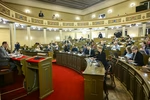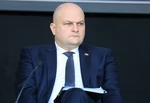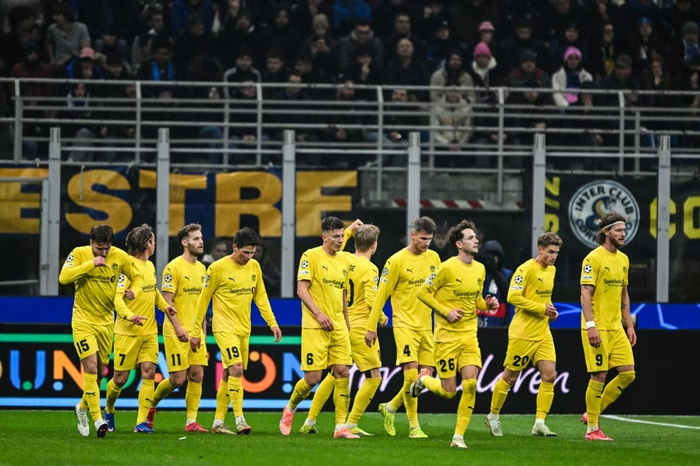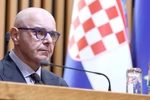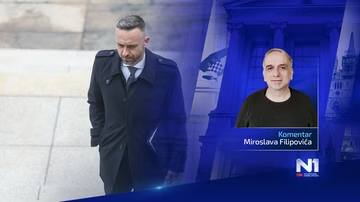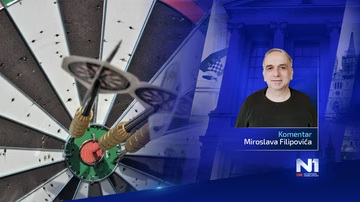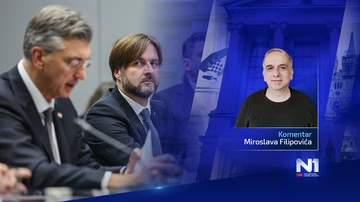Croatia's ministry, agency: Meta's end of fact-checking challenge to democracy

Croatia's Ministry of Culture and Media and Agency for Electronic Media (AEM) have expressed concern over the announcement by Meta's CEO, Mark Zuckerberg, about the removal of fact-checking services on Facebook and Instagram in the United States.
They describe the social media giant's announcement about ending fact-checking in the U.S. on Facebook, Instagram and other Meta platforms as an act that does not consider the public interest and could pose a significant challenge to democratic society.
Following Zuckerberg's announcement, Croatian journalistic associations – the Croatian Journalists' Association (HND) and the Croatian Journalists Trade Union (SNH) – have sent a letter to Prime Minister Andrej Plenković and relevant institutions, calling for the acceleration of the implementation of the Digital Services Act (DSA) and for all necessary steps to be taken to protect the public interest, the integrity of the media space, and the rights of users.
The ministry and the AEM agency, which are in charge of the Croatian fact-checking platform project Točno tako that brings together 21 fact-checkers, emphasise that social media platforms are not media and should not be perceived as such in any way.
The ministry tells Hina that Zuckerberg's announcement does not signal the demise of fact-checking, which they consider to be extremely important as it offers citizens the ability to verify information and make informed choices.
Both the ministry and the AEM, in their responses to Hina, underline that Zuckerberg's announcement to remove fact-checkers from social media represents a potential significant threat to democratic societies due to the possible removal of restrictions on many forms of speech that Meta has previously considered harmful.
The AEM agency clarifies that Zuckerberg's announcement currently only applies to the United States and should primarily be viewed as a reaction to political events and relations in the U.S., as well as a business move that does not take the public interest into account.
The Croatian media regulator goes on to say that the European Regulators Group for Audiovisual Media Services (ERGA), which brings together all 27 national independent regulatory bodies in the field of audiovisual services, will not likely respond to Zuckerberg's announcement this week, as it is not fully competent in this area.
"We assume that the European Commission, which directly regulates Facebook and Instagram, could only react once it understands Meta's intentions regarding compliance with the obligations under the Digital Services Act (DSA). It is expected that any potential violation of the DSA by any platform will be appropriately sanctioned," the AEM states.
They also confirm that the EU is currently unprepared to respond uniformly to the challenges posed by Zuckerberg's announcement, including those related to the spread of misinformation. This is because negotiations are still ongoing within the EU regarding the transformation of the co-regulatory act "Code of Practice on Disinformation" into a "Code of Conduct", which platforms should adhere to under the Digital Services Act (DSA).
HND, SNH urge adoption of Digital Services Act (DSA)
On the other hand, Croatia's parliament has not yet passed the Digital Services Act (DSA).
The Digital Services Act and Digital Markets Act aim to create a safer digital space where the fundamental rights of users are protected and to establish a level playing field for businesses.
Only after the adoption of this law, the Croatian Regulatory Authority for Network Industries (HAKOM), which has already been appointed as the national coordinator for digital services and is responsible for the implementation of the Digital Services Act (DSA), will need to adopt its regulations in order to "aggregate" the work of the relevant institutions that issue orders for actions against illegal content on the internet – including the spread of misinformation, hate speech, and harmful content for children and minors.
Therefore, the HND and SNH have sent a letter to Prime Minister Plenković calling for the adoption of the DSA as soon as possible.
"At this moment, when global platforms like Meta are changing their approach to content moderation, we urge the Croatian government and relevant authorities to accelerate the implementation of the Digital Services Act (DSA) and take all necessary steps to protect the public interest, the integrity of the media space, and the rights of users. We also call for the acceleration of alignment with European values and the rule of law, urging you to adopt concrete measures and amend legislation in accordance with the accepted European law on media freedom and the Anti-SLAPP directive," concludes their letter.
Kakvo je tvoje mišljenje o ovome?
Pridruži se raspravi ili pročitaj komentare



 Srbija
Srbija
 Bosna i Hercegovina
Bosna i Hercegovina
 Slovenija
Slovenija













